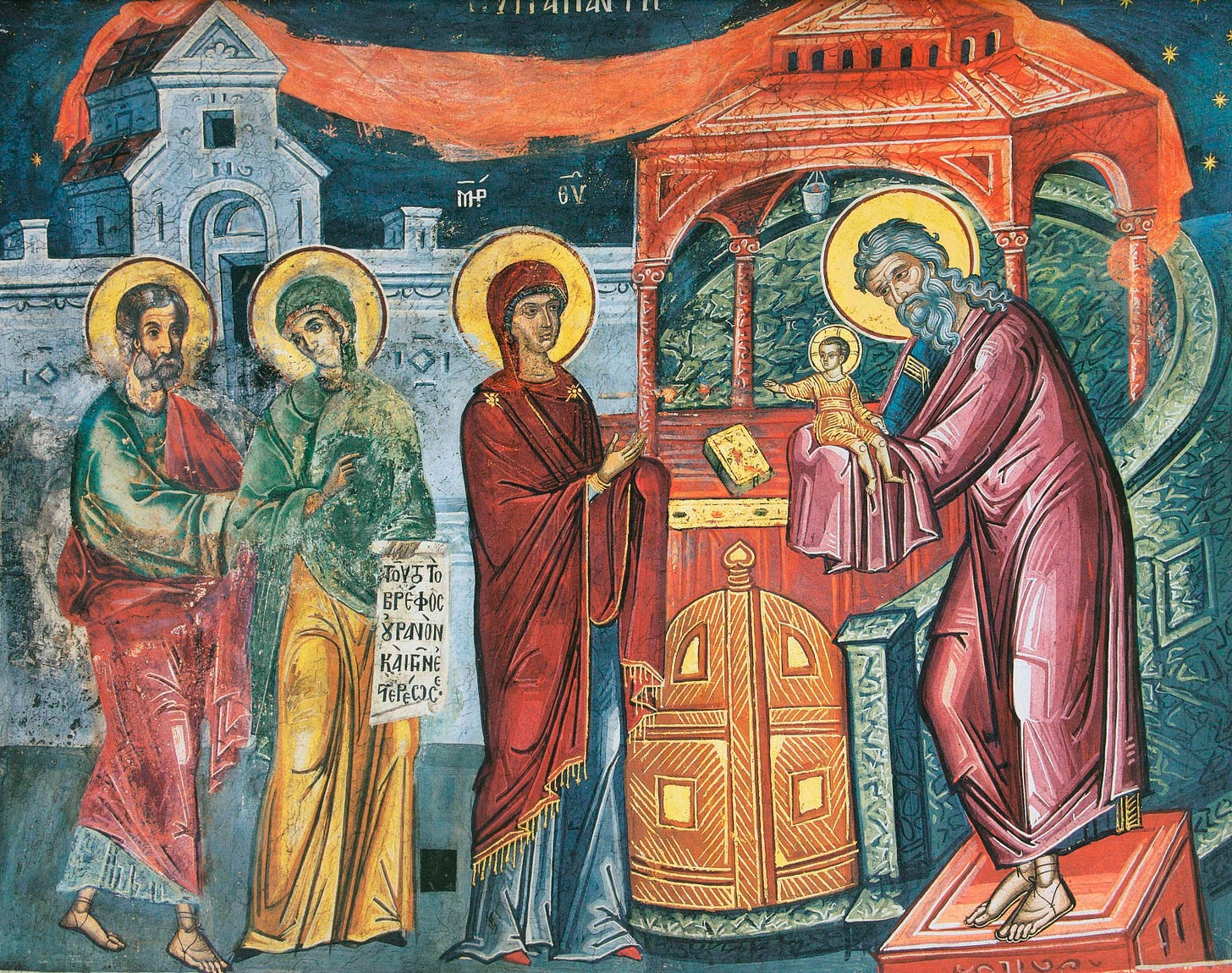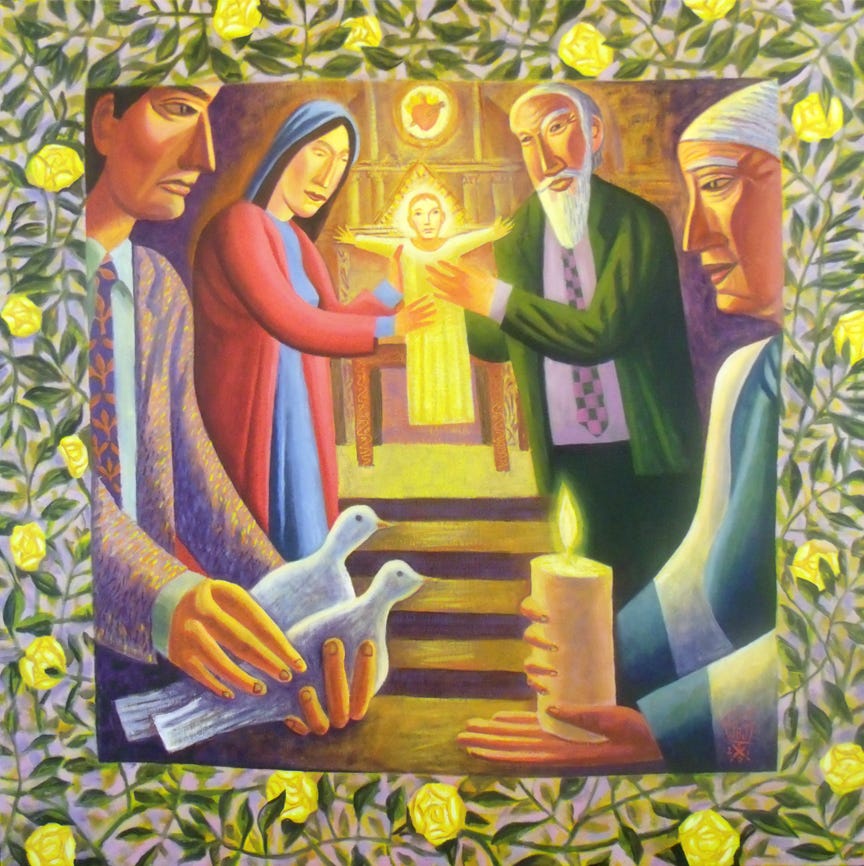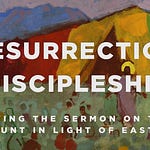What a difference seven days can make. For those who were here on Christmas Eve, you know how grand of an event the day was. 250 people were here, in this sanctuary, at one point or another over four worship services just seven days ago. The organ sounded beautiful. The choir was excellent, as usual. There was a saxophone solo. And children and adults raising glow sticks and candles towards the heavens as we sang Silent Night.
Christmas Eve and Christmas Day are both days of great expectations.[i] On Christmas Eve, we anxiously await the celebration of the birth of Christ. Then, the following morning, the celebration continues as family and friends who are closer than family gather to eat, exchange gifts, and celebrate the day. The expectations of the days between Christmas Eve and Christmas Day and today will surely leave us in a fog. Perhaps this is the result of a liberal work-from-home policy, traveling for holiday vacations or to spend time with family, or because we’ve eaten too much cheese over the past five days. Either way, the expectations we hold for this season give us high highs, while many of us expect to find low lows as well.
This evening, we will mark the end of the year, and expectations abound. Many expect to stay up until the wee hours of the night for a moment to celebrate as the clock rolls from one day to the next. This change in the calendar happens every day. We move from one day to the next every day, but tonight, our expectations are different. We expect that new possibilities will appear as we move from one day to the next and the calendar rolls from one year to the next. Tonight, with glasses of champagne and hor d'oeuvres, we will begin trading our expectations from God's grand intrusion into our lives for the expectations we place on ourselves and others for a new year.
Suppose Advent and Christmas Eve were a season of great expectations, today, with the First Sunday After Christmas alongside the possibilities of a new year. In that case, one might say we are entering the season of the great resumption. Do not hear me wrong; this is not a case of your pastor casting guilt upon their congregation. I am right there with you. At the parsonage, we are preparing for the kids to return to school, deciding when to pack up all of the Christmas decorations, and beginning to name our hopes for the new year.
The Sundays after Christmas and Easter are typically called “low Sundays” among the clergy. Low for many reasons. Statistically, attendance is much lower than the last grand worship service. Low because the fanfare and excitement of Christmas and Easter – Christmas with its candles and Easter with its brass-led fanfare - are in the rearview mirror. The gloominess of the past week can leave us feeling low.
While I am happy the rain held off and did not fall on our Christmas Eve worshippers, I wish God had gotten the memo about our expectations for this week. This last week was supposed to be our opportunity to “repeat the sounding joy” of Christmas, but instead, the low after the holiday was sped up because many of us did not see the sun much this week.
Simeon and Anna were both filled with expectations. For both, their expectations rested not in the cycle of the Temple but rather in the promise made by God to Israel – to raise up the messiah through the line of David. So, Simeon and Anna waited. Anna waited in the Temple for the coming of the Lord. Imagine spending day and night here in the Chapel, waiting for the Lord to be presented, not knowing what to be on the lookout for. Simeon relied on the Holy Spirit to tell him when he might go to the Temple to find what. A mighty warrior? A well-skilled politician? A baby enters the Temple for the first time so the child’s parents can offer “a sacrifice according to what is stated in the law of the Lord.”[ii] We read that the child’s parents offered “a pair of turtledoves or two young pigeons,”[iii] signaling to us that the family presenting Jesus was not of extravagant means.

Simeon sees the child coming toward him, scoops the child up, and then, echoing what the angel had told the shepherds, announces that his child was “a light for revelation to the Gentiles and for glory to your people Israel.”[iv] A few moments later, the prophet Anna “began to praise God and to speak about the child to all who were looking for the redemption of Jerusalem.”[v]
The heavenly hosts were gone. Their songs that filled the night sky over the shepherds and manger are no more.
Mary and Joseph were going about the business of being a Jewish family living in Nazareth. They scrounged up what they could for their meager offering, perhaps not expecting what would happen as they arrived in Jerusalem.
Anyone who has traveled with a newborn knows to expect the unexpected. This is why diaper bags are always backed to the brim with extra diapers, formula, wipes, blankets, clothing, and everything else a child needs. They expect to need all of these things at one point or another, but many parents will tell you they always needed the one thing they did not expect and that one thing is as different as each child is.
Simeon and Anna were clinging to the ancient expectations of Israel. The expectation was that the Lord would raise up the messiah through the line of David. They waited and prayed. They searched the scriptures as Israel had done for centuries. Then, one day, their expectations were fulfilled in a child. In the middle of Mary and Joseph taking their son to the Temple in accordance with the Law, in the middle of Simeon and Anna’s prayers, the expectations of the Lord were fulfilled. The joyous expectations of the manger were revealed in the middle of the day-to-day life of Mary and Joseph and Simeon and Anna.
You see, many believe Jesus came to destroy the traditions of religion, to overturn centuries of belief and practice, to disjoin Israel from its faith. But from the very beginning, we see this is not Jesus’s way. Jesus is the fulfillment of the hopes and expectations of Israel, the fulfillment of centuries of prayer.
There is a rhythm to the story of Christ – a mix of tradition, intrusion, and resumption. This rhythm creates the expectations many of us have for the church, and frankly, these rhythms can become tiresome. Our liturgy repeats itself week after week. We hear a scripture reading, thinking, “Did we not just read that a year ago? Why read it again?” We think we want spontaneity, right?
As spontaneous as we would like to think that we are, we all have expectations for the rhythm of our lives. Much of that rhythm has played out as expected over the last week. Worship, hold candles, sing Silent Night, open gifts, feast, and prepare for what is next – vacations, squeezing in end-of-year work, etc.
The joy of Christmas is that through the Incarnation, through a child, God has broken up the expected rhythm of our lives. While the day-to-day grind of Israel continued after the shepherds finished their singing and dancing, God continued to surprise the faithful at the Temple, in the synagogues, at a wedding in Cana, throughout Galilee, and ultimately through a borrowed grave.
On Christmas Eve, I told the congregation that when Heaven and Earth collide, the aftermath is joy. When Heaven and Earth collide, we can expect the joyous disruption of our routines and expectations. So, on this First Sunday After Christmas, we celebrate that while we may want Christianity to be warm and spontaneous, to be full of miracles, Christianity is also about the habit of prayer and studying God’s word, like Simeon and Anna, quietly waiting for the Lord to come.
After leaving the Temple, Mary and Joseph returned to their expected normal life in Nazareth. Mary washing and singing lullabies to her child before a morning nap while Joseph returned to the carpenter’s shop. And then, one day, while Mary is singing and Joseph is working, the glory of the Lord, in their son, will be revealed. The same is true for us, for as we return to the expected normal of life after Christmas, as the Christmas carols begin to fade, we still cling to the promise of grand divine intrusion. Just as the Lord promised that Christ would be born of David, so does the Lord promise Christ will return.
[i] I am forever grateful to the work of Rev. Will Willimon. His sermon, titled “The Grand Resumption After the Grand Intrusion”, which was preached at Duke Chapel on December 27, 1987, greatly influenced this sermon. I cherish Rev. Willimon’s ministry and friendship.
[ii] Luke 2:24
[iii] Ibid.
[iv] Luke 2:32
[v] Luke 2:38

















Share this post